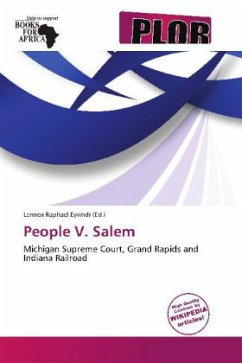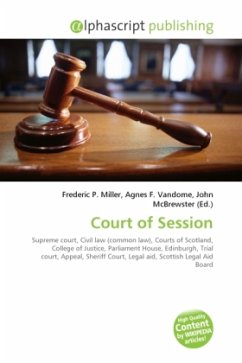
Salem Witch Trials
Versandkostenfrei!
Versandfertig in 6-10 Tagen
23,99 €
inkl. MwSt.

PAYBACK Punkte
12 °P sammeln!
The Salem witch trials were a series of hearings before local magistrates followed by county court trials to prosecute people accused of witchcraft in Essex, Suffolk, and Middlesex counties of colonial Massachusetts, between February 1692 and May 1693. The episode has been used in political rhetoric and popular literature as a vivid cautionary tale about the dangers of religious extremism, false accusations, lapses in due process, and governmental intrusion on individual liberties. Despite being generally known as the "Salem" witch trials, the preliminary hearings in 1692 were conducted in a v...
The Salem witch trials were a series of hearings before local magistrates followed by county court trials to prosecute people accused of witchcraft in Essex, Suffolk, and Middlesex counties of colonial Massachusetts, between February 1692 and May 1693. The episode has been used in political rhetoric and popular literature as a vivid cautionary tale about the dangers of religious extremism, false accusations, lapses in due process, and governmental intrusion on individual liberties. Despite being generally known as the "Salem" witch trials, the preliminary hearings in 1692 were conducted in a variety of towns across the province: Salem Village, Ipswich, Andover and Salem Town. The best-known trials were conducted by the Court of Oyer and Terminer in 1692 in Salem Town. Over 150 people were arrested and imprisoned, with even more accused but not formally pursued by the authorities. At least five more of the accused died in prison.












